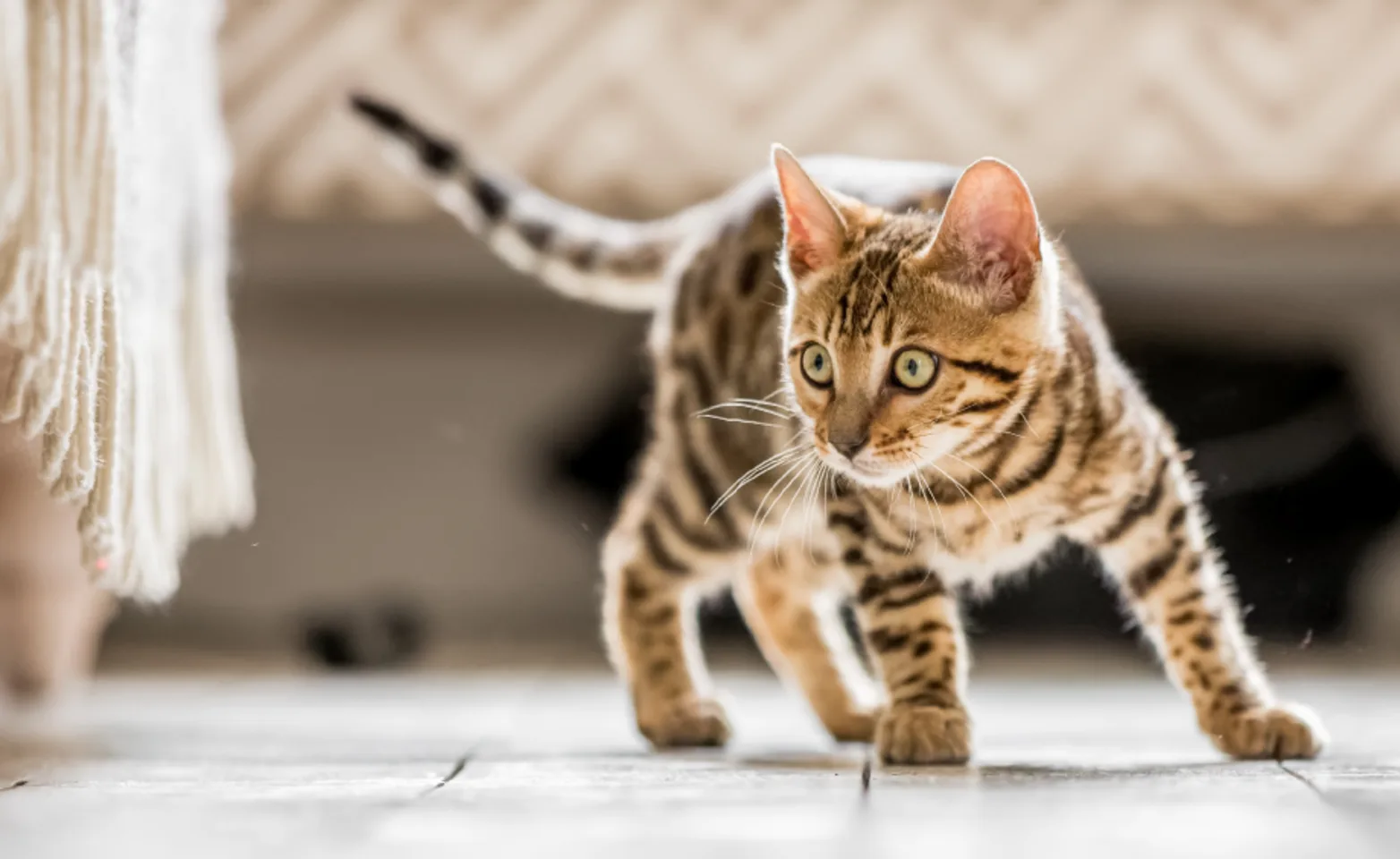Oregon Veterinary Specialty Hospital

Although you will receive more details on getting your cat ready for their radioiodine treatment and post-care, here is a brief overview on what you can expect.
Food
Bring more than enough food for your cat's entire stay. During treatment we want your cat to avoid stress so we will be feeding them a little extra to help them through treatment. Usually, this involves adding roughly 50% to what they are normally fed at home.
For a standard stay (4 days) we ask that you bring 6 days worth of food.
For an extended stay (11 days) we ask that you bring 15 days worth of food.
Please bring food in the original bag or a labeled gallon freezer bag with:
First and last name.
Brand of food.
Type of food.
If your cat prefers canned food, please bring a variety of flavors.
Please note that we cannot accommodate raw food diets or freeze-dried treats. If your cat has these in their diet you will need to transition them for at least 2 weeks prior to their treatment.
Any non-freeze-dried treats/snacks are fine.
Medicine
Bring all medication your pet may currently be taking in their original prescription bottles.
Please note that we can only administer critical medications for the duration of your cat's stay.
Supplements will not be administered unless your veterinarian informs us otherwise.
Medication will be given in either a pill pocket or in food, if your cat is not already acclimated to this we ask that you prepare them for it.
A Toy
Optionally, bring a small toy.
Toys cannot have strings, feathers, or tails.
Toys can have catnip, but it is recommended the toy has fresh catnip.
Please note that (due to the radiation exposure) the toys you leave with us will not be returned.
A Towel or Clothing Article
Optionally, bring a small clothing article or towel.
Bedding will be supplied to your cat whilst they are staying with us, but they may feel less stressed if they have something that smells like their home.
Please note that (due to the radiation exposure) the toys you leave with us will not be returned.
A Reusable Shopping Bag
Optionally, bring a reusable shopping bag.
These are handy for keeping and returning items to you once your cat's treatment has concluded.
Food will be kept separately, so if any food is left unopened it will be returned to you.
Isolation
Please note that this is not a complete list and we will provide you with more specifics in regard to your individual cat once they have been discharged.
If you cannot do all the things listed below, please let us know so we can troubleshoot with you.
Your cat does not have to be fully segregated and kept isolated, however, you must follow the guidelines below.
Limit close contact (within 1 ft) between your cat with the following for 14 days, if they have to come into contact with your cat, limit it to 10 mins/day maximum:
Children under 12
Pregnant women
Immunocompromised individuals
Elderly family members
Limit close contact (within 1 ft) between your cat with the following for 7 days, if they have to come into contact with your cat, limit it to 30 mins/day maximum:
Adults
IMPORTANT: In order to protect yourself and others, please adhere to the following:
Pregnant women should have absolutely no contact with your cat's urine or feces for 14 days
Nobody can sleep with your cat for 7 days
Please note that your cat does not have to be separated from other pets, however, their litterbox should be treated as potentially contaminated.
Your cat must be kept inside for 14 days
Waste
Due to the radiation, your cat's bodily fluids and waste will be radioactive, therefore some precautions will need to be taken for 7 days.
Use a clumping litter as it allows the waste to be scooped and stored.
If you are using flushable litter, you may continue to do so. However, please ensure your septic system can handle it and that your cat is comfortable with it.
If you plan on changing your cat's litter type or brand, please get your cat acclimated to it 3 weeks prior to treatment.
You will need to purchase the following prior to your cat's discharge:
A 5-gallon bucket with a lid.
Some dog poop bags.
Some disposable gloves.
Some heavy-duty kitchen trash bags
An absorbent litter collection pad (for front of litterbox | can be disposable, cloth, or even an absorbent towel)
Please note the instructions below that will inform you on how to collect and store your cat's litter:
Place and keep your bucket in the corner of your garage or another non-common area.
Place 2 heavy-duty kitchen trash bags into the bucket (one inside of another in order to create 2 layers).
Place the scooped litter in a dog poop bag and tie a knot at the top.
Place the tied bag into the bucket.
After 7 days, empty the entire contents of any litter box your cat may have used into the bucket.
If you used a disposable litter collection pad: place that into the bucket as well.
If you used a cloth litter collection pad or absorbent towel and want to keep it: wash it twice in a washing machine, then dry it.
Tie off the tops of each heavy-duty kitchen trash bag tightly.
Push the trash bag down into the bucket and firmly attach the lid.
Tape the lid shut and write on the lid:
RADIOACTIVE ANIMAL WASTE.
The date you sealed the bucket.
The date you can throw it away in your normal city trash (80 days from seal date).
Place the bucket in the corner of your garage or another non-common area.
Clean your litter boxes with hot soapy water.
Once you have surpassed the date you can throw it away that you previously wrote down, you may put it in the regular trash so long as you then remove the biohazard label before doing so.
